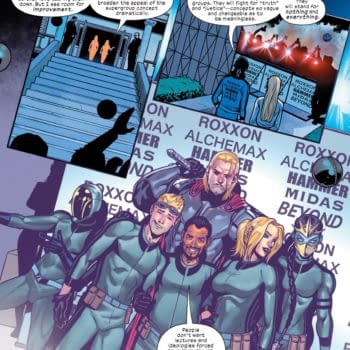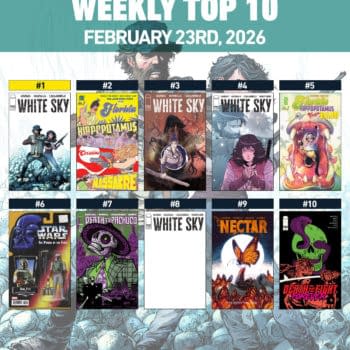Posted in: Comics, Recent Updates | Tagged: Comics, Comics Experience, entertainment, idw, Paul Allor, Paul Tucker, TET
Unraveling A War-Time Crime In Vietnam And The Lives It Affected – Paul Allor Talks TET
IDW, in conjunction with Comics Experience, are bringing us TET, by Paul Allor and Paul Tucker, in September, a story that combines a criminal investigation with war-time Vietnam, an American Marine, his Vietnamese fiancee, and a police chief. It's an ambitious story which tracks their emotional involvement, and the impact these events have on their lives over a long period of time.
Something you'll notice right away when you encounter the comic is the amount of carefully handled exposition which takes you inside the lives of the characters while also maintaining a decompressed feel to include details from daily life. TET is a title that has the potential to strike emotional chords in readers and addresses recognizable overarching themes like the difficulties soldiers face returning to mainstream society after war, the idealism and realities behind the American Dream, and the unpredictability of the world in affecting the lives we plan for.

HMS: Paul, from what I've gleaned, you've worked across a number of genres when you consider both your writing and editing work. Is this your first "war story" though? Would you describe it at such, given it has many elements?
Paul Allor: I've definitely made a deliberate attempt to work in many different genres and styles, so it's good to hear that it shows. And yeah, I think that if you had to pick one genre for this book, then "war story" would definitely be it. But when I'm writing, I tend to not think in terms of genre conventions and tropes, and just let the story go where the story needs to go. I know that sounds kind of disingenuous-bordering-on-pretentious, but there you go.
We've been calling this a war/crime/romance story, but that's something that came about after developing the story, and seeing elements of all three of those things in it. Really, it's a story about these people's lives. And all of our day-to-day lives tend to have elements of many genres in them – workplace drama, buddy comedy, mystery, body horror, adventure, erotica.
And yes, I'd say this is my first war story, though I did work on GI Joe, and my Teenage Mutant Ninja Turtles: Utrom Empire mini-series centered around a sci-fi war fought between squiggly brain-aliens and genetically modified dinosaurs. Tet is, perhaps, slightly more grounded than that.
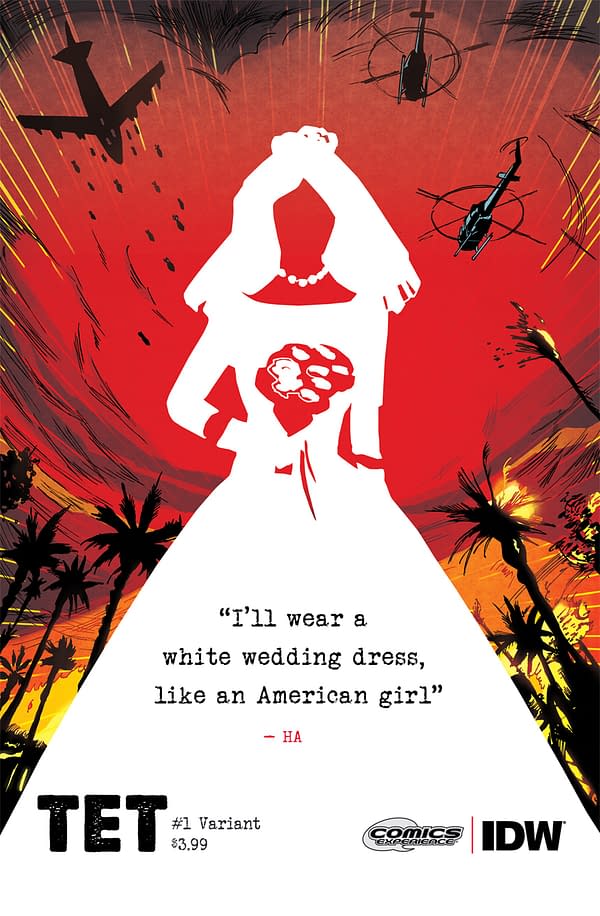
PA: The seed of the idea was just the notion of a murder that takes place in a war zone, and an investigation that's derailed by battle. I kicked that around in my head for a while, and it developed into a story that basically used that as a jumping-off point for a larger story about our three main characters' experiences during the war, and how it shapes their lives for years to come.
The idea was still in its early phases when I took it to Paul Tucker, and he had a tremendous role in developing it further. The scripts also all went through the Comics Experience Creator's Workshop, and the feedback I received there was tremendously helpful in strengthening the story further.
HMS: Did you feel any pressure or concern when approaching a Vietnam setting for this story, given we have so many veterans in our midst, to handle the subject in a way that didn't stereotype or trivialize their experiences?
PA: Absolutely. I grew up in a military family, and my dad is a disabled veteran, so it was very important to me to be respectful towards those who served, and particularly those who served in the Battle for Hue City, which our story is centered around. At the same time, I also didn't want to stereotype or trivialize the experiences of the Vietnamese forces and civilians who were caught up in this conflict. But any time you're writing something that's both based on real-life experiences, and intended to be entertaining, there's a concern that you are trivializing people's very real, very painful experiences. Hopefully people don't feel that that's the case here; and if they do, then all I can do is listen to them, learn from them and try to do better next time.
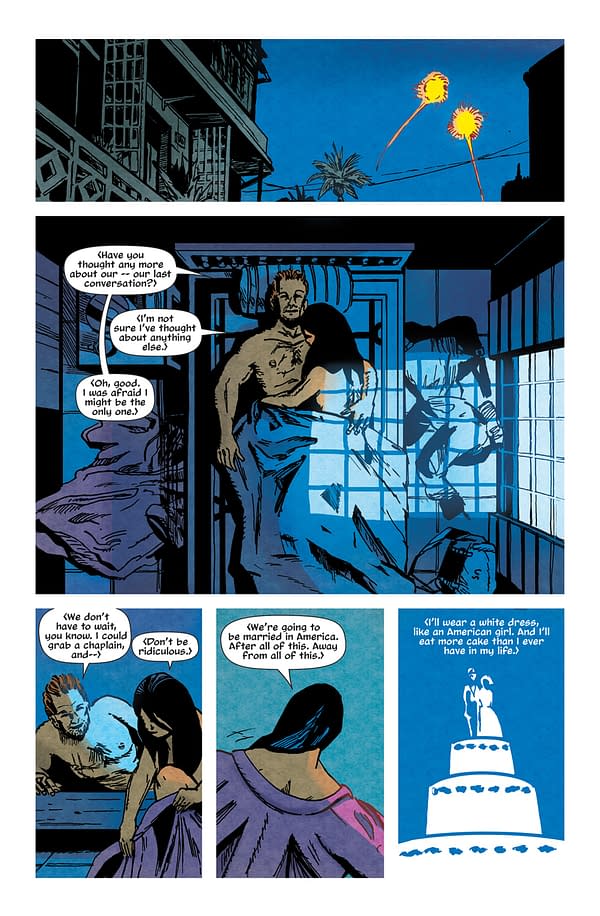
PA: Boy, that's a good question. Ha's voice was shaped by several different things, including immigrant stories I've heard or been around over the years. I also spoke with some Vietnamese immigrants over the course of writing this book, and read/heard the stories of many more. But mostly it just came from developing Ha's character, and understanding her motivations and her belief system. Her view of America comes from a place of hope – a hope that's rooted a bit in desperation, and a hope that's strong enough to create an idealized view of her future, blinding her to the idea that there could be any downside. And that's a fairly universal experience.
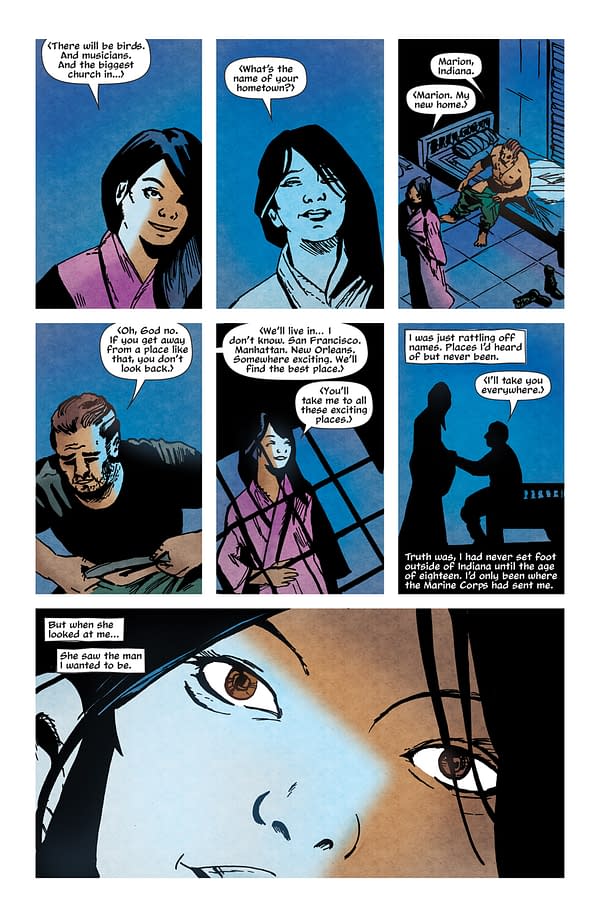
PA: You're right, there are different settings, and different, overlapping timelines. But I also think there's an overriding emotional journey that carries you through. I also think artist Paul Tucker does a great job of giving the individual moments and emotional beats plenty of room to breathe – he went so far as suggesting that we add two pages to the third issue, since he felt parts of the script were a bit tighter than they should be (and he was right!).
Also, while there are a lot of minor characters, this really is a story that focuses very tightly on three people: Eugene, an American Marine; Ha, a young Vietnamese woman; and Bao, a police officer in Hue City. It is, collectively, their story.
I'm also glad you asked about balancing the prose and the art, because that was very important to us. Before I started scripting, Paul and I had some long discussions about the look and feel of the book, and how we could incorporate Eugene's narration in a way that didn't feel expository or tacked on. As a result, the text and art work together in what I hope is a very symbiotic way, with Paul using the combination of text, white space and silhouette as a pretty effective storytelling device. All of which sounds really vague and high-faluting, but hopefully when people see the book, they'll understand what we mean.
I'd also note that Paul used this same design aesthetic on both the main and variant covers, to great effect.
HMS: What are some things you think Paul Tucker brings to this comic that are particular to his vision and skill?
PA: Definitely the design aesthetic I mentioned up above. Also, a meticulous sense of detail, and commitment to research, which combined to create what I think is a real sense of verisimilitude, and a very lived-in feel to our world. Paul's work is also exquisitely well-paced; he's extraordinary at capturing small emotional moments (and there tend to be a lot of those, in my work in general and this book in particular); and his use of color in this book is just absolutely stunning.
HMS: What is it that you most want to accomplish with TET in terms of reader experience and perhaps even, message?
PA: In terms of a message, there are definitely things I was trying to say with this book; but I'd rather not put them out there before it's out, you know? Much more interesting to let people decide for themselves what message (if any) they want to take away.
Mainly, I just want readers to walk away feeling like they got something out of this story. If given the choice, I would rather create comics that make you feel than comics that make you think. But if I can do both, then that would be ideal.
TET #1 arrives September 9th. Pre-order codes are: JUL150526 (main cover) and JUL1550527 (variant cover).


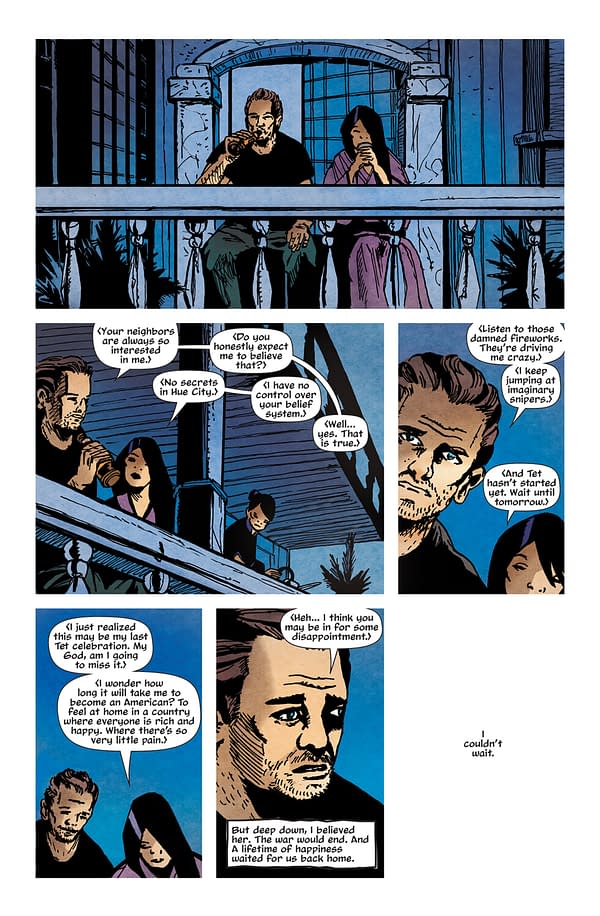
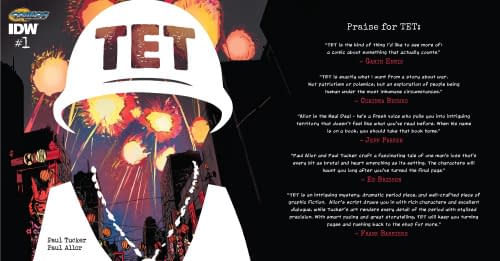








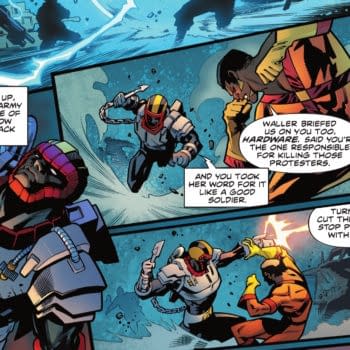
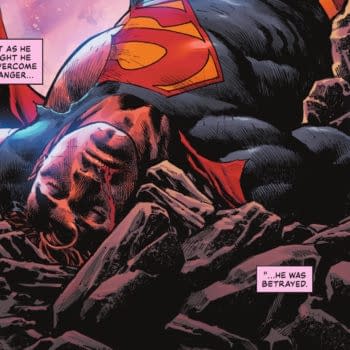
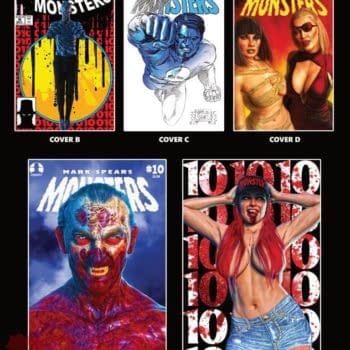
![White Sky #]1 second printing](https://mlpnk72yciwc.i.optimole.com/cqhiHLc.IIZS~2ef73/w:350/h:350/q:75/rt:fill/g:ce/https://bleedingcool.com/wp-content/uploads/2026/02/unnamed-2026-02-18T203050.994-350x350.jpg)
